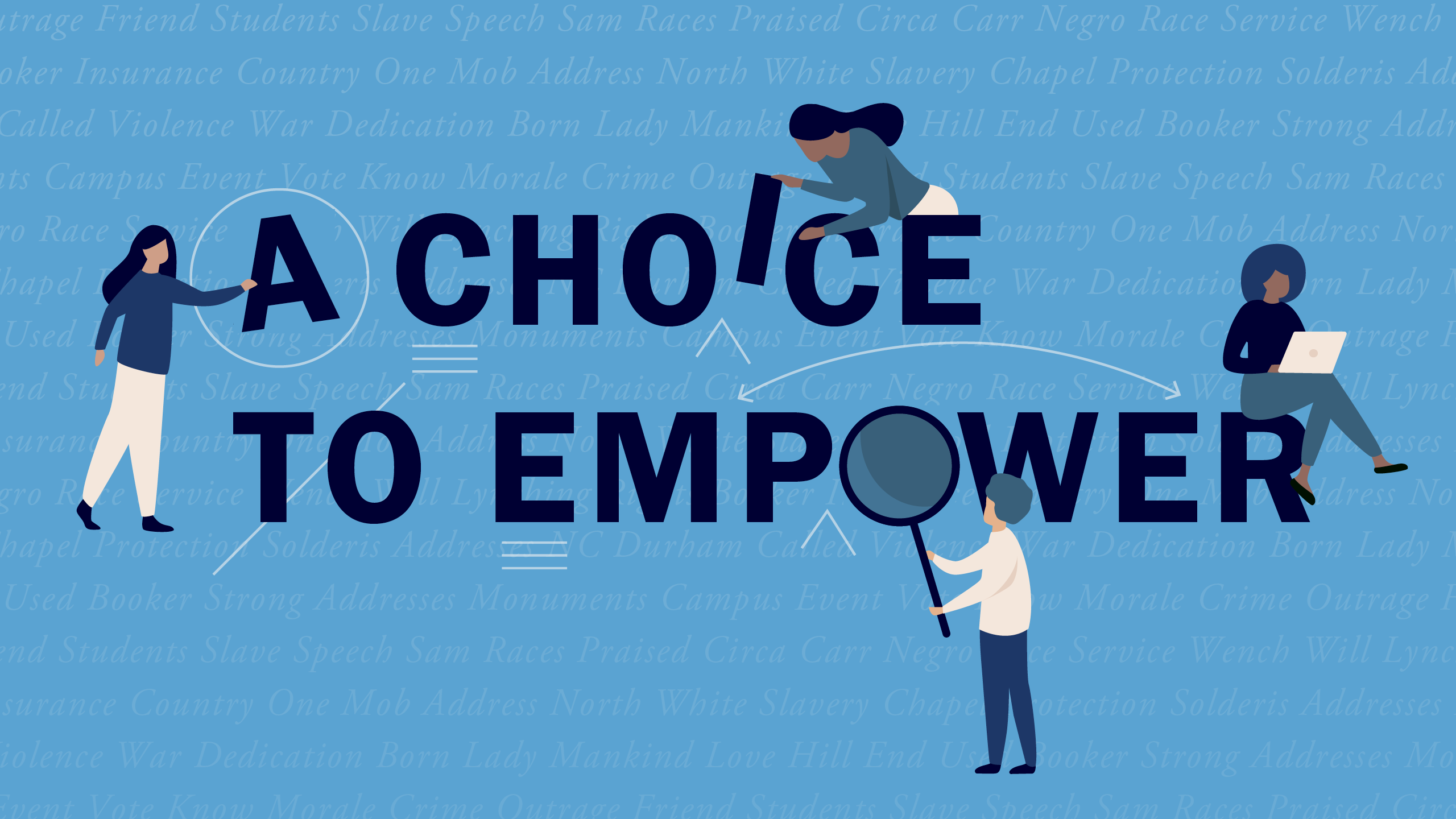 Librarians and archivists are updating the tools of their trade to give researchers a more accurate and inclusive view of materials.
Librarians and archivists are updating the tools of their trade to give researchers a more accurate and inclusive view of materials.
Let’s say you wanted to research the papers of Julian Shakespeare Carr (1845-1924) in the Wilson Special Collections Library.
A search of the University Libraries’ website or on your favorite search engine would lead you to the Carr papers finding aid, a description of the papers prepared by Wilson Library archivists to help guide researchers.
There, you would read in part that the papers document Carr’s “financial interest in tobacco, textiles, and banking; affiliations with the Methodist Church, the Democratic Party in North Carolina, and organizations commemorating the Confederacy; and philanthropic support of institutions of higher education, particularly the University of North Carolina.”
But two years ago, Wilson Library’s processing archivists added the following:
“In keeping with the white supremacy movements in North Carolina at the turn of the twentieth century, Carr defended the institution of slavery, claiming it had been beneficial to the enslaved, and argued for denying full citizenship rights to African-Americans.”
The addition is part of an effort in Wilson Library to rework online descriptions for collections of papers, as well as catalog records for published materials. This work seeks to replace racist and derogatory language and to add information that presents more balanced accounts—for example, by indicating if someone was an enslaver or by highlighting collection material about African Americans. Names of enslaved individuals are added when they are known and, in some cases, gender inequities also are addressed.
María R. Estorino, associate University librarian for special collections, says it is important to ask the questions, “Whose experiences are we privileging, what stories are we elevating and what voices are we ignoring?”
Libraries and archives make choices in how they describe the collections and published materials, she says: “So we are using that agency to ensure that the language we use is respectful, mindful and empowering and does not disenfranchise or alienate anyone in our communities of users.”
The new choices that Wilson Library staff are making take many forms.
Jackie Dean, head of archival processing, says that the descriptions of many antebellum papers recount the accomplishments of white families at length without acknowledging the enslaved people whose labor built their wealth.
Much of the language in the descriptions of those papers “softens the role that white Southerners played in the system of racial oppression,” says Dean. “It is offensive to see enslaving families glorified in this way.”
Similarly, if someone was a white supremacist, “we’re trying to make sure that the description is not covering up or glossing over their roles,” she says. One example is the papers of William Laurence Saunders (1835-1891). The original description noted his role as a Confederate officer, attorney, editor and UNC Trustee, but omitted that he was a North Carolina Ku Klux Klan leader and organizer—an addition that Dean’s team has made.
And while traditional descriptions identified race only for African American or Indigenous individuals, Dean says the staff now seeks to identify everyone by race to avoid “othering” non-whites or implying that white is the default.
Dean’s staff aims to review and perhaps revise the more than 500 descriptions for collections of antebellum papers in the Library’s Southern Historical Collection. The effort will take years. So far, they have reworked about 40 descriptions.
Staff who prepare the catalog records for published materials in Wilson Library face not just books, but also periodicals, newspapers, CDs, maps, microfilms and sound recordings—some 680,000 items in all.
“We can no longer imagine that transcribing racial slurs or using the subject heading ‘illegal aliens’ are inclusive or responsible practices,” says Estorino. “Our goal is to be more intentional about the words we use, more aware of their impact and to become a more accessible and welcoming library as a result.”
The archival staff started this process in 2017, joining a trend in libraries nationwide. The cataloging staff is just beginning their work, researching standards set forth by the American Library Association and the Library of Congress and discussing how to apply them to Wilson Library’s materials.
The librarians aren’t working in a vacuum. Staff of other library units can make a request for remediation. And last year, a library-wide steering committee came together to guide the work.
The original descriptions will be kept. “People do find value in looking at the old versions,” Dean said. They will be available on request or as part of the collection.
Chaitra Powell, African American collections and outreach archivist, says that the work of her colleagues can have a real impact on researchers.
“So many people of color are trying to access our collections,” she says. “If they are able to talk to a librarian, they’ll learn techniques to navigate the collection and find information about people of color.” If they are at home or on their own, though, these researchers might assume that Wilson Library had nothing for them.
“We can take this step now to give a better representation of these folks that have been marginalized in the collections for so long,” says Powell. “It feels like part of our responsibility.”
Story by Laura J. Toler
This story originally appeared in the fall/winter 2020 issue of Windows, the magazine of the Friends of the Library at the University Libraries.
Ed. note: Due to an error during editing, the print version of this article incorrectly lists the birth and death dates of Julian Carr as 1892-1923. This is actually the extent of his records at Wilson Library. We regret the mistake.
Return to Windows fall/winter 2020 stories


